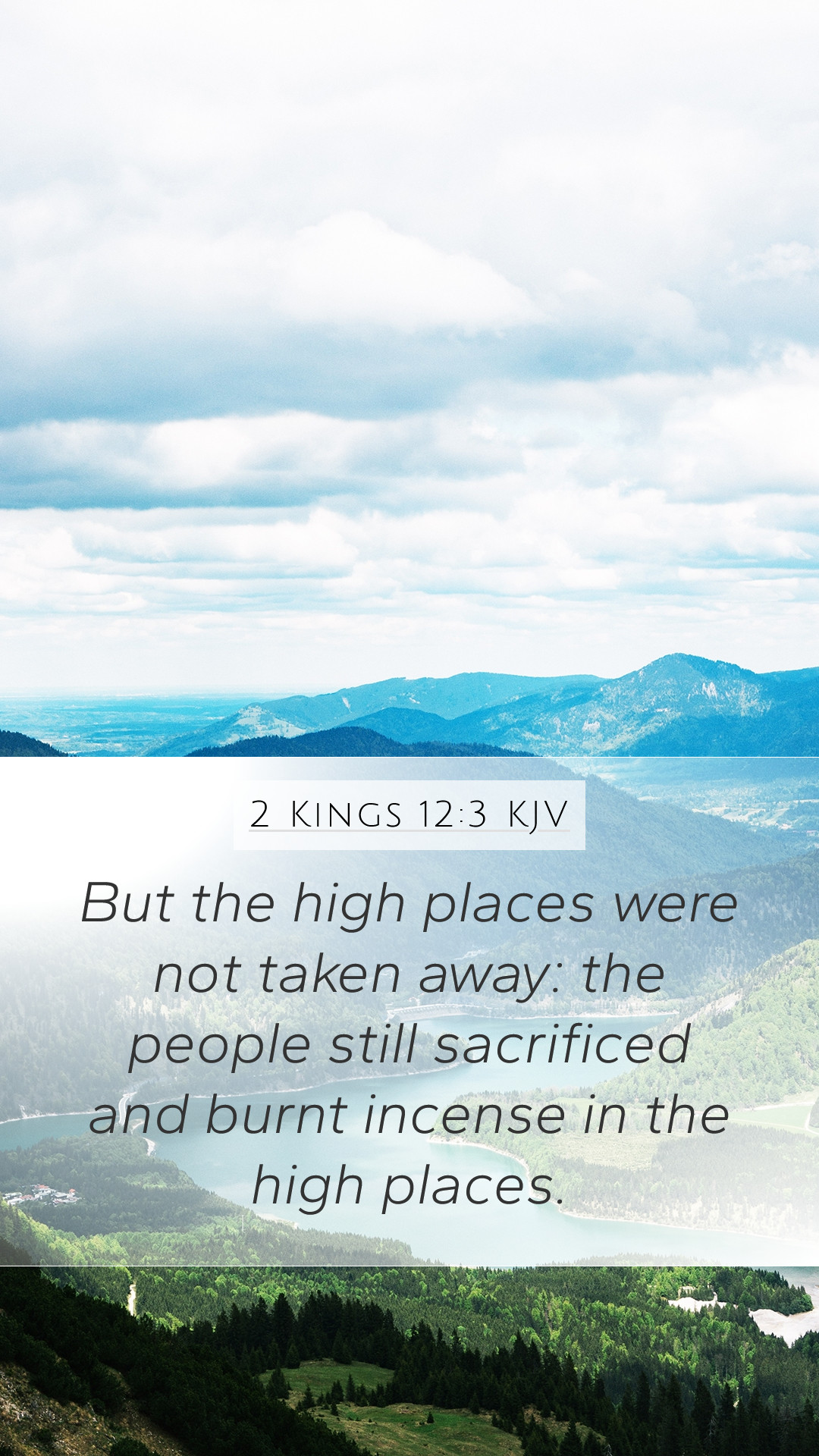Old Testament
Genesis Exodus Leviticus Numbers Deuteronomy Joshua Judges Ruth 1 Samuel 2 Samuel 1 Kings 2 Kings 1 Chronicles 2 Chronicles Ezra Nehemiah Esther Job Psalms Proverbs Ecclesiastes Song of Solomon Isaiah Jeremiah Lamentations Ezekiel Daniel Hosea Joel Amos Obadiah Jonah Micah Nahum Habakkuk Zephaniah Haggai Zechariah Malachi2 Kings 12:3 Meaning
What is the meaning of 2 Kings 12:3?
But the high places were not taken away: the people still sacrificed and burnt incense in the high places.
2 Kings 12:3 Bible Verse Meaning
Bible Verse: 2 Kings 12:3
Verse: "But the high places were not taken away; the people still sacrificed and burned incense in the high places."
Understanding 2 Kings 12:3
This verse describes the state of idol worship that persisted in Judah during the reign of King Joash. Despite Joash's efforts to restore true worship and renovate the temple, the high places for idol worship remained untouched, highlighting the people's continued commitment to these practices.
Historical Context
The high places were sites designated for worship that were often associated with pagan practices. In Israel's history, these locations became significant centers for idolatry that contradicts the command given in the Law of Moses to worship God only at the central sanctuary.
Commentary Insights
-
Matthew Henry:
Henry emphasizes the irony of the situation: while Joash was concerned about restoring proper worship in the temple, the high places remained as a symbol of the people's unresolved devotion to false gods.
-
Albert Barnes:
Barnes notes that while Joash initiated reforms, the people's hearts were not fully aligned with Yahweh, as evidenced by their continued sacrifices at the high places.
-
Adam Clarke:
Clarke emphasizes the need for internal reform in the worship of God. The presence of the high places signifies a divided loyalty among the people, indicating a lack of true repentance and dedication.
Theological Implications
This verse serves as a stark reminder of the complexities involved in spiritual reform. It raises questions about the nature of true worship and the challenges of rooting out ingrained practices of idolatry, both in ancient Israel and in contemporary faith contexts.
Practical Application
For modern readers, this verse challenges individuals and communities to examine areas of their lives that may contradict their professed faith. It invites reflection on personal idols and the high places in our lives—those distractions or alternate priorities that take the focus away from true worship of God.
Bible Study Insights
Engaging with this verse in a Bible study group or online Bible study can prompt discussions on how to identify and remove modern-day 'high places.' Utilizing Bible study tools can deepen understanding of the cultural significance of worship practices.
Cross References
- 2 Chronicles 24:2-5 - parallel account of Joash's reign and reforms
- 1 Kings 15:14 - discusses the high places in the context of Asa's reforms
- Deuteronomy 12:2-5 - instructions regarding the destruction of high places


